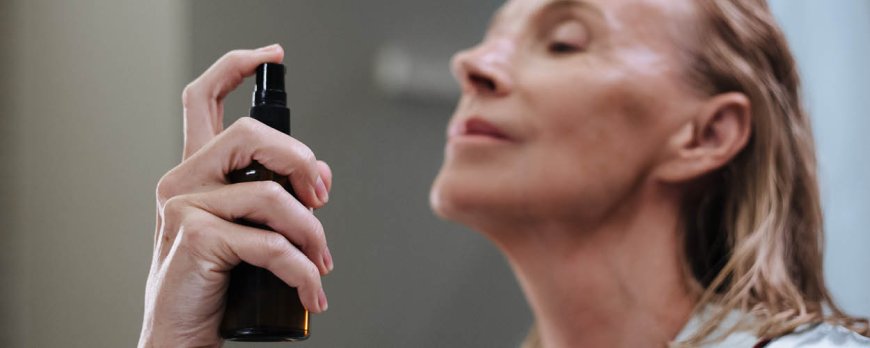Why can't we live forever?
Explore 'Why can't we live forever?' - Unravel the mysteries of life, aging, and death in our insightful article shedding light on the limits of human longevity.

Why can't we live forever?
Section 1: Introduction
Humans have always been fascinated by the idea of living forever, but the reality is that our life span is inherently limited. Despite advances in science and medicine, we are still unable to achieve immortality. This section will explore the reasons why we cannot live forever, including the aging process and the effects of oxidative stress on our cells.
Key Takeaways:
- Human life span is inherently limited, and we cannot achieve immortality.
- The aging process and oxidative stress play a significant role in determining our life span.
- Advances in science and medicine have not yet found a way to prolong human life indefinitely.
- Despite the quest for immortal life, the reality is that death is an inevitable part of the human experience.
The Aging Process and Biological Limitations
As we age, our bodies undergo a series of biological changes that contribute to the decline in our physical and mental health. The aging process is a complex phenomenon influenced by various factors, including genetics, lifestyle, and environmental exposures. Understanding the biological limitations of human lifespan can provide insights into why we cannot live forever.
One of the key factors contributing to the aging process is the accumulation of oxidative stress and damage in our cells. Reactive oxygen and nitrogen molecules generated from normal metabolic processes, such as eating and breathing, can cause cellular damage over time. This oxidative stress leads to the deterioration of our bodily functions and the eventual onset of age-related diseases.
Additionally, our cells have a limited ability to repair themselves, which further contributes to the aging process. DNA damage and the gradual decline in the function of mitochondria, the powerhouses of our cells, play significant roles in this decline. These biological limitations prevent us from achieving immortality or extending our lifespan indefinitely.
The Role of Genetic Factors
Genetic factors also play a crucial role in determining human lifespan. Certain genetic variations can influence our susceptibility to age-related diseases and the rate at which we age. However, it is important to note that genetics alone cannot account for the entire aging process. Environmental factors, such as diet, exercise, and exposure to toxins, interact with our genes and influence the pace at which we age.
In conclusion, the aging process and the biological limitations of our bodies make it impossible for us to live forever. While scientific research is ongoing to understand human longevity and explore interventions to slow down the aging process, the quest for immortality remains elusive. Embracing a healthy lifestyle and minimizing oxidative stress can help optimize our lifespan, but it is essential to recognize the inevitability of death as a natural part of the human experience.
Scientific Research on Human Longevity
Scientists around the world are actively studying the genetic factors that influence human life span and searching for ways to extend our longevity. Research in this field has revealed that certain genetic variations can impact the rate at which we age and our susceptibility to age-related diseases. By understanding these genetic factors, scientists hope to develop interventions that slow down the aging process and improve overall health in later life.
One area of focus in scientific research on human longevity is the role of telomeres. Telomeres are protective caps at the ends of our chromosomes that shorten with each cell division. When telomeres become too short, cells stop dividing and enter a state of senescence or die. By studying telomeres and the enzyme telomerase that helps maintain their length, scientists aim to unlock the secret to cell division and potentially extend the life span of our cells.
Current research also investigates the impact of lifestyle factors on genetic aging.
Researchers have found that certain lifestyle choices, such as maintaining a healthy diet and engaging in regular exercise, can positively influence gene expression and slow down the aging process. These lifestyle factors may activate specific genes that promote longevity while suppressing others associated with age-related diseases.
- Regular physical activity: Engaging in regular exercise has been shown to reduce the risk of age-related conditions, such as cardiovascular disease and diabetes. Exercise also promotes cellular repair and regeneration, helping to maintain the health and function of our body's systems.
- Healthy diet: Consuming a nutrient-rich diet, including fruits, vegetables, whole grains, and lean proteins, provides essential vitamins and minerals that support cellular health. Certain dietary components, such as antioxidants and polyphenols, are thought to have anti-aging properties by reducing oxidative stress and inflammation.
- Stress management: Chronic stress can accelerate the aging process and increase the risk of age-related diseases. Effective stress management techniques, such as mindfulness meditation and regular relaxation exercises, can help reduce stress levels and promote overall well-being.
While scientific research on human longevity continues to make significant strides, it is important to acknowledge that there are still many unknowns. The complexities of aging and the vast array of genetic and environmental factors involved make the pursuit of immortality elusive. However, through ongoing research and a commitment to healthy lifestyle practices, we can optimize our longevity and enhance our quality of life as we age.

Impact of Lifestyle and Environmental Factors
Our lifestyle choices and the environment we live in greatly influence our life span and how we age. Adopting a healthy lifestyle can help optimize longevity and reduce the risk of age-related diseases. Here are some key factors that play a role in determining our mortality rate and the aging process:
- Healthy Diet: Consuming a balanced diet rich in fruits, vegetables, whole grains, lean proteins, and healthy fats provides essential nutrients and antioxidants that support cellular health and combat oxidative stress.
- Regular Exercise: Engaging in physical activity on a regular basis helps maintain a healthy weight, promotes cardiovascular health, strengthens bones and muscles, and boosts overall well-being.
- Stress Management: Chronic stress can accelerate the aging process and increase the risk of various diseases. Practicing stress-management techniques such as meditation, yoga, and engaging in hobbies can help reduce stress levels.
- Avoiding Harmful Substances: Limiting or avoiding the consumption of alcohol, tobacco, and illicit drugs can significantly improve health outcomes and reduce mortality rates.
- Environmental Factors: Our exposure to pollutants, toxins, and other environmental hazards can impact our health and contribute to the aging process. Taking steps to minimize exposure, such as ensuring clean air and water, can support longevity.
It is important to note that while a healthy lifestyle can enhance our well-being and promote a longer life, it does not guarantee immortality. The maximum life span for humans is estimated to be around 117 years, even with optimal lifestyle practices. This limitation is due to the inherent biological factors, such as the dependency on mitochondria, which produce the byproducts of aging. These factors contribute to the eventual decline in bodily functions and the inevitability of death.
While scientific research continues to explore interventions and strategies to slow down the aging process, such as drugs or dietary changes, their effectiveness and safety in humans are yet to be proven. It is crucial to approach claims of immortality or extreme longevity with skepticism and rely on evidence-based practices that prioritize overall health and well-being. By adopting a healthy lifestyle and creating a conducive environment, we can enhance our quality of life and make the most of the years we have.

Oxidative Stress and Aging
Oxidative stress, caused by reactive molecules generated in our bodies, plays a significant role in the aging process and the development of age-related diseases. As we go through life, our cells naturally produce these reactive molecules, also known as free radicals, as a byproduct of normal metabolic processes. However, when their production exceeds the body's ability to neutralize them, oxidative stress occurs. This imbalance between the production of reactive molecules and the body's antioxidant defenses leads to the damage of cellular components, including DNA, proteins, and lipids.
Oxidative stress not only accelerates the aging process but also contributes to the onset and progression of various age-related diseases, including cardiovascular diseases, neurodegenerative disorders, and cancer. Reactive molecules can cause cellular inflammation and impair the function of vital organs, promoting the development of chronic conditions. Additionally, oxidative stress can further amplify its damaging effects by triggering a vicious cycle in which oxidative damage leads to more reactive molecule production, perpetuating the cycle of cellular deterioration.
To mitigate the impact of oxidative stress on aging and disease development, maintaining an antioxidant-rich diet and engaging in regular physical activity can be beneficial. Antioxidants, found abundantly in fruits, vegetables, and whole grains, help neutralize reactive molecules and reduce oxidative stress. Exercise also enhances the body's antioxidant defenses and promotes overall well-being. However, while these lifestyle choices can contribute to health and longevity, they cannot completely halt the aging process or eliminate the accumulation of oxidative stress over time.
Maximizing Life Span through Healthy Practices
While we cannot live forever, adopting certain healthy practices can help us maximize our potential life span. Taking care of our bodies and prioritizing well-being can significantly impact our overall health and increase our chances of living a long and fulfilling life. Here are some key practices that can contribute to maximizing our life span:
- Eating a Balanced Diet: Consuming a nutritious and well-balanced diet is essential for maintaining optimal health. Including a variety of fruits, vegetables, whole grains, lean proteins, and healthy fats can provide our bodies with the necessary nutrients, vitamins, and minerals.
- Regular Exercise: Engaging in regular physical activity has numerous health benefits and can help improve our cardiovascular health, strengthen our muscles and bones, and boost our immune system. Aim for at least 150 minutes of moderate-intensity aerobic exercise or 75 minutes of vigorous-intensity exercise per week.
- Managing Stress: Chronic stress can have detrimental effects on our health, contributing to various physical and mental ailments. Incorporating stress management techniques such as meditation, deep breathing exercises, or engaging in hobbies and activities we enjoy can help reduce stress levels and promote overall well-being.
- Getting Sufficient Sleep: Quality sleep is crucial for our overall health and longevity. Aim for 7-9 hours of uninterrupted sleep each night to allow your body and mind to rest and rejuvenate.
Additional Considerations
While these healthy practices can contribute to maximizing our life span, it's important to remember that individual factors such as genetics and environmental influences also play a role. It's essential to consult with healthcare professionals and follow their advice for personalized recommendations based on your medical history and specific needs.
By adopting a healthy lifestyle, we can enhance our well-being, increase our chances of living a longer life, and improve our overall quality of life. Although we may not achieve immortality, making conscious choices to prioritize our health can make a significant difference in maximizing our potential life span.

The Limitations of Currently Proposed Strategies
Various strategies have been proposed to slow down aging processes, but their efficacy and safety in humans remain uncertain. While there is ongoing research and promising results in animal studies, it is important to recognize the limitations of these interventions when it comes to human longevity.
1. Drugs: Some drugs have shown potential in slowing down the aging process and extending life span in animal models. However, their effects on humans are still being investigated, and the long-term safety and side effects are not well understood.
- Key Takeaway: The use of drugs to slow down aging processes is still in the experimental stage and should be approached with caution until further research is conducted.
2. Changes in Diet: Dietary modifications, such as calorie restriction or specific nutrient supplementation, have been suggested as a way to slow down aging and promote longevity. While these approaches have shown promising results in certain animal studies, their effectiveness in humans is yet to be established.
- Key Takeaway: Although a healthy diet is essential for overall well-being, specific dietary interventions to slow down aging processes should be approached with skepticism until more conclusive evidence is available.
3. Aging Processes: The complexity of the aging process itself poses a challenge when it comes to developing effective strategies to slow it down. Aging involves multiple interconnected mechanisms at the cellular and molecular levels, making it difficult to target with a single intervention.
- Key Takeaway: Slowing down aging processes requires a comprehensive understanding of the underlying mechanisms and a multi-faceted approach that addresses the various aspects of cellular aging.
While the quest for strategies to extend human life span continues, it is important to approach currently proposed interventions with caution. Despite the limitations, ongoing scientific research offers hope in understanding the complexities of the human aging process and finding ways to optimize longevity in the future.

The Quest for Immortality Throughout History
The desire for immortality has captivated human beings for centuries, shaping mythology, religious beliefs, and scientific pursuits. Throughout history, civilizations have sought ways to overcome the limits of human mortality and achieve eternal life. Ancient myths and folklore abound with stories of heroes and gods who achieved immortality through various means, from consuming magical substances to embarking on epic quests.
Religion has also played a significant role in the quest for immortality. Many faiths offer the promise of an afterlife or the possibility of transcending death through spiritual practices and beliefs. The idea of an eternal existence beyond our earthly lives has provided solace and hope to countless individuals throughout the ages.
In more recent times, scientific research has become a driving force in the pursuit of longevity. Scientists have been studying the aging process and searching for ways to slow it down or even reverse it. While significant advancements have been made in understanding the biological mechanisms behind aging, the dream of immortality remains elusive.
The Limitations of Currently Proposed Strategies
- Drugs and interventions aimed at prolonging life and slowing down aging processes show promise in animal studies, but their effectiveness and safety in humans are yet to be proven.
- Changes in diet, such as calorie restriction or specific nutrient supplementation, have been explored as potential strategies for extending life span, but the impact on human longevity is still uncertain.
While we continue our scientific exploration and investigation into the mysteries of aging, it is essential to acknowledge the limitations inherent in our quest for immortality. The aging process is a complex interplay of genetic factors, environmental influences, and the accumulation of cellular damage over time. Our dependence on mitochondria, which produce the byproducts of aging, presents a biological barrier that prevents us from living forever.
As we strive to maximize our life span through healthy practices and scientific advancements, we must also embrace the inevitability of death as an intrinsic part of the human experience. While immortality may remain beyond our reach, our pursuit of understanding and prolonging life continues to shape our beliefs, values, and the way we approach the world.
The Maximum Life Span Estimate
Researchers estimate that the maximum life span for humans is around 117 years, influenced by genetic factors and the inherent limitations of our biology. While advances in healthcare and lifestyle improvements have increased the average life expectancy, there seems to be a natural threshold beyond which we cannot extend our lives. This maximum life span is shaped by various factors, including our genetic makeup and the functioning of our cells.
Our mitochondria, often referred to as the powerhouses of our cells, play a crucial role in energy production and, interestingly, in the aging process. As we age, mitochondria produce byproducts that contribute to cellular damage and decline. This accumulation of byproducts and the resulting oxidative stress ultimately impact our biological systems and limit our life span.
To date, numerous studies have explored the potential of drugs or changes in diet to slow down the aging process, but their effectiveness remains unproven. While some interventions have shown promise in animal studies, their translation to human longevity is still uncertain. It is essential to approach these strategies with caution while recognizing the complex interplay of genetic factors and environmental influences on our life span.
While we may yearn for immortality, the reality is that our biology dictates our mortality. The aging process, with all its intricacies and the accumulated effects of oxidative stress, gradually diminishes our bodily functions and leads to death. Our pursuit of a longer life should focus on optimizing our health and well-being within the scope of our inherent limitations.
The Inevitability of Death
Despite our efforts to understand and delay the aging process, death remains an inevitable part of the human experience. While the average life span of humans has been increasing, there is a limit to how long we can live. Some researchers have explored the possibility of slowing down aging processes through interventions like drugs or changes in diet, but these strategies are still unproven.
For centuries, humans have been captivated by the concept of immortality. However, the aging process and the accumulation of oxidative stress and damage to our cells ultimately lead to our mortality. Reactive molecules generated from oxygen and nitrogen, obtained through eating and breathing, contribute to the aging process and the onset of age-related diseases.
Even with a healthy lifestyle, the maximum life span is estimated to be around 117 years. Our dependency on mitochondria, which produce the byproducts of aging, makes it impossible for us to live forever. Despite advancements in scientific research and our understanding of genetic factors that influence longevity, death remains a natural part of our existence.
In summary, death is an inescapable reality that we must face as humans. Although we strive to comprehend and delay the aging process, our efforts are limited by the biological constraints placed upon us. While we may continue to seek ways to extend our life span, it is essential to embrace the beauty and preciousness of the time we have, making the most of each moment.
Conclusion
While the average life span of humans is increasing, there are inherent biological limitations that prevent us from achieving immortality. However, through scientific research and healthy practices, we can optimize our longevity and embrace the beauty and fragility of the human life span.
Research suggests that drugs or changes in diet may slow down the aging process, but these strategies are still unproven in terms of their effectiveness and safety for humans. It is an ongoing field of study, and scientists are continuously exploring interventions that could potentially extend human life span.
The quest for immortality has been embedded in human history for centuries, with ancient myths and religious beliefs revolving around the concept. However, the aging process and the accumulation of oxidative stress and damage to our cells are inevitable, leading to our mortality.
Oxidative stress occurs as a result of reactive molecules generated from oxygen and nitrogen, which contribute to cellular damage and accelerate the aging process. Even with a healthy lifestyle that includes proper nutrition, regular exercise, stress management, and other positive habits, the maximum life span is estimated to be around 117 years.
Our dependency on mitochondria, which produce the byproducts of aging, makes it impossible for humans to live forever. While we cannot escape death, we can focus on maximizing our life span by making informed choices and taking care of our physical and mental well-being.
FAQ
Why can't we live forever?
The aging process and the accumulation of oxidative stress and damage to our cells ultimately lead to our death. Despite efforts to find ways to slow down aging processes, such as drugs or changes in diet, these strategies remain unproven.
What contributes to aging and disease?
Oxygen and nitrogen from eating and breathing generate reactive molecules that contribute to aging and disease. These reactive molecules can cause damage to our cells and accelerate the aging process.
What is the maximum life span?
Even with a healthy lifestyle, the maximum life span is estimated to be around 117 years. Genetic factors and the dependency on mitochondria, which produce the byproducts of aging, make it impossible to live forever.






























































































































